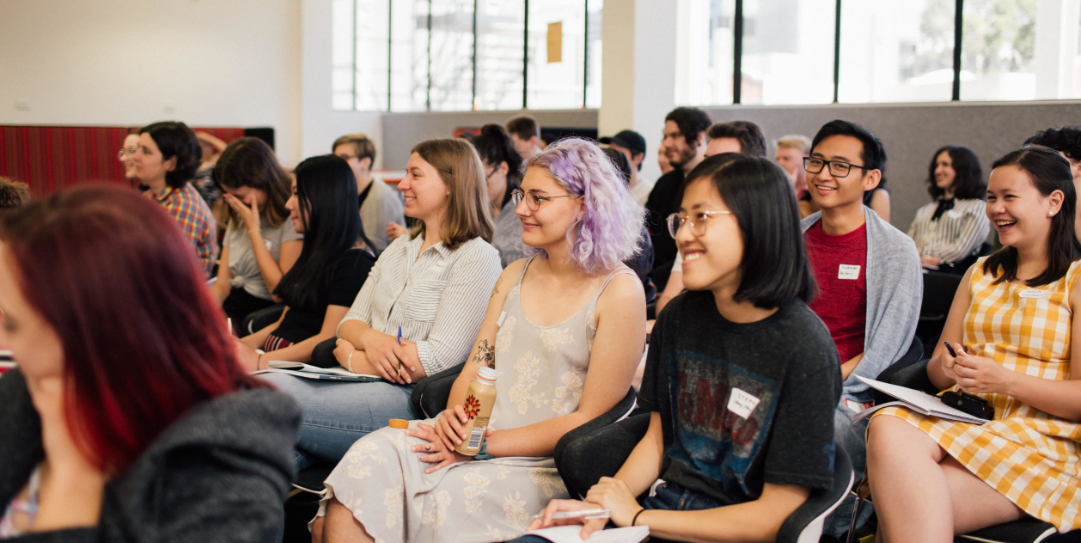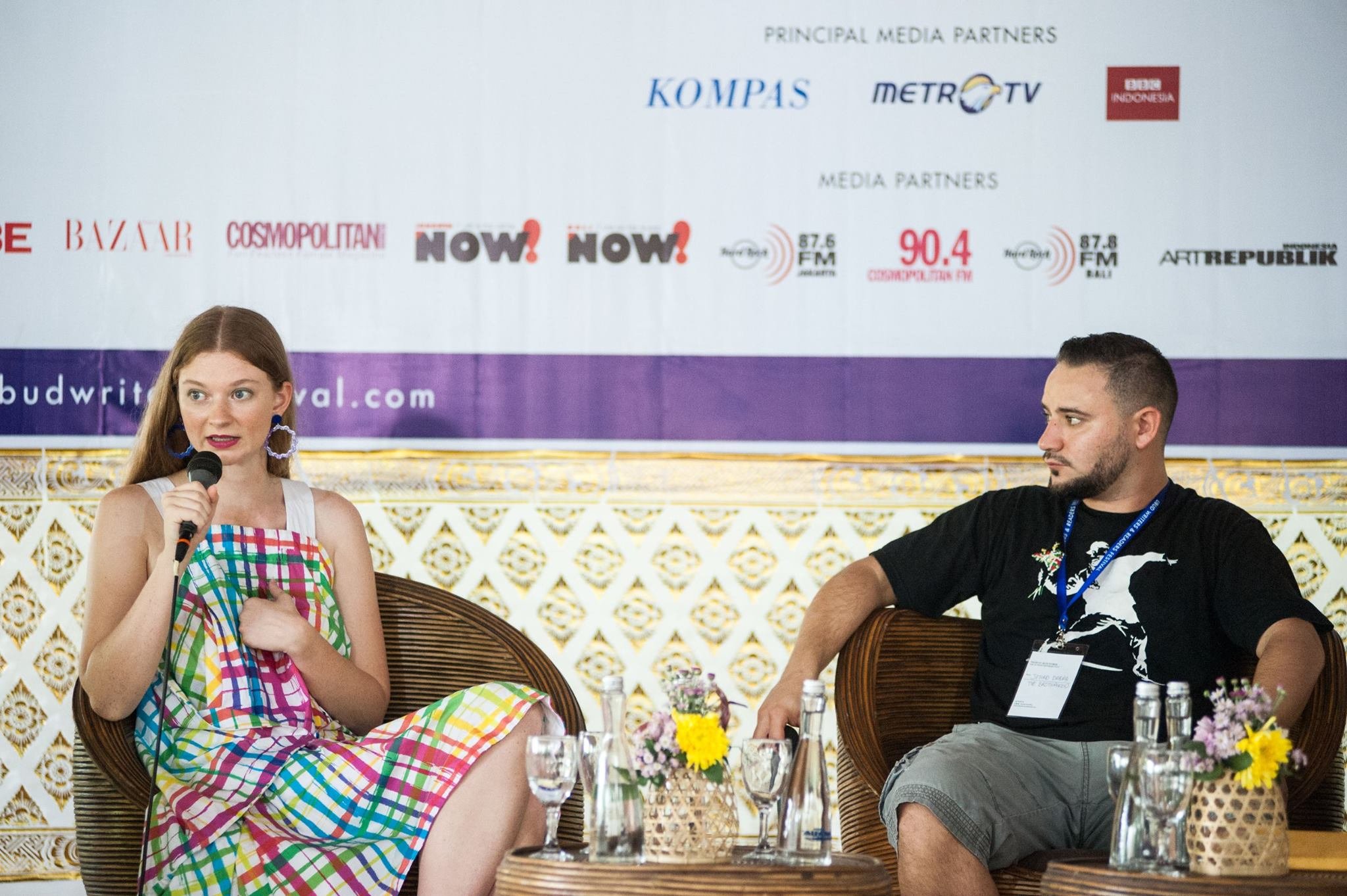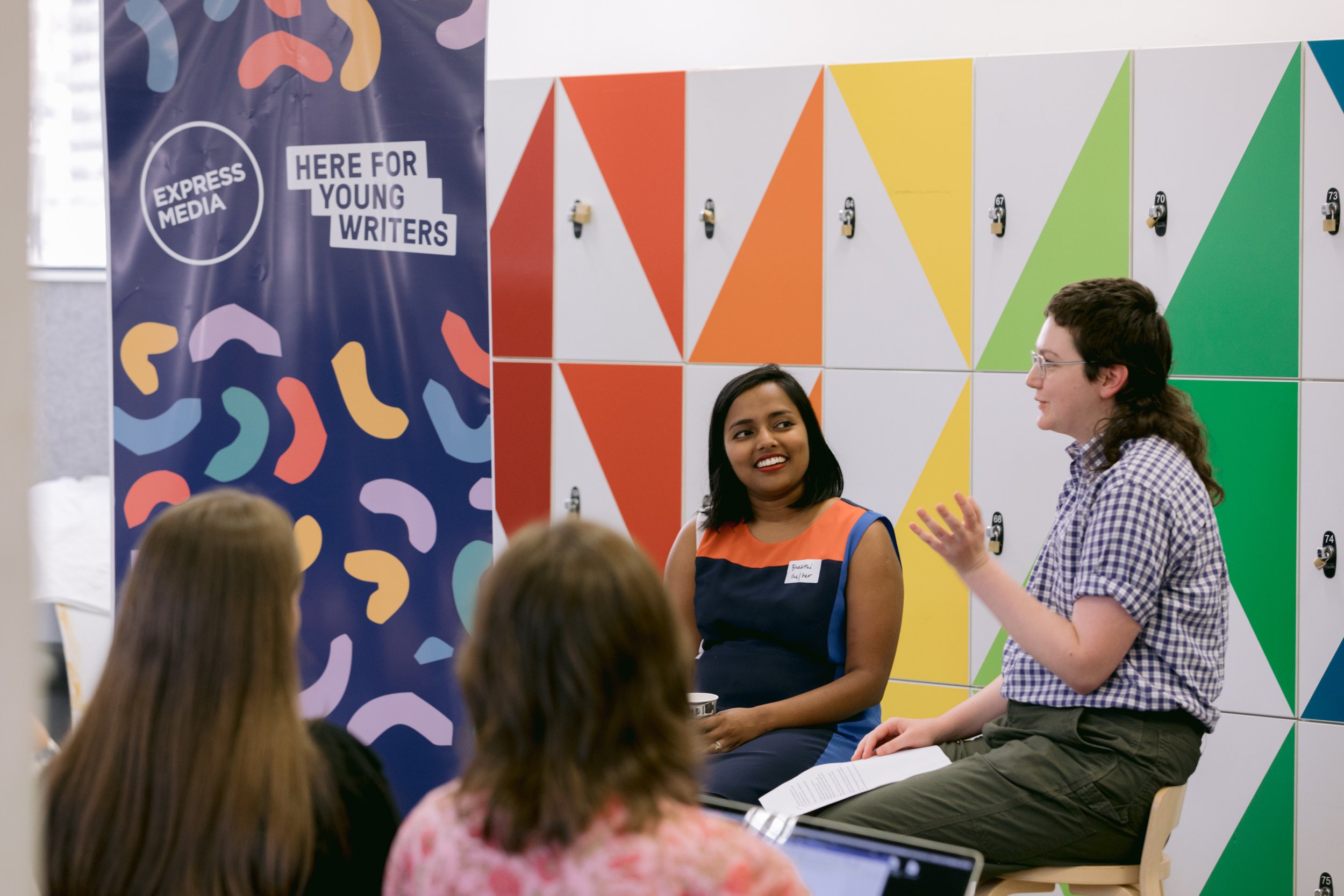
WORKSHOPS, PROGRAMS & PUBLISHING OPPORTUNITIES FOR WRITERS UNDER 30
VOICEWORKS
VOICEWORKS
Voiceworks is a national literary journal that features exciting new writing and art by young Australians. Our purpose is to create a space for people under 25 to develop their creative and editorial skills and to publish, and be paid for, their fiction, nonfiction, poetry, art and comics.
-
School Workshops
Working with young people in secondary schools to build essential literary skills, develop their voices, and achieve their creative goals.
-
Voiceworks Magazine
Australia’s premier youth literary journal, publishing the best fiction, nonfiction, poetry, comics and visual art by people under 25.
-

Kat Muscat Fellowship
A national fellowship offering support and development for young writers and editors of underrepresented genders.
-

Toolkits
Our annual series of craft-specific online writing programs, designed to equip young writers with new skills in Fiction, Non-Fiction, Poetry, Graphic Narratives and Digital Storytelling.
-

Little Stories, Big Ideas
A flash-fiction competition for secondary school students that runs twice a year. Write to a themed prompt in 100 words or less, in any literary style you like (fiction, poetry, comics lyrics etc.)
-

Parliament Express
An exciting program that takes young Victorian writers behind the scenes at the Parliament of Victoria. Gain practical insights into writing on politics and policymaking.
-

Hachette Australia Prize for Young Writers
Awarding unforgettable opportunities to secondary school-aged writers across categories of Poetry, Fiction, and Non-Fiction.
-

Catalyse Nonfiction Prize
A unique development award to foster talented nonfiction writers aged 30 and under.
-

National Editing and Writing Students (NEWS) Conference
Professional development for newly-appointed student media editors from across Australia.
-

Left to Write
An online six-week writing group that provides an opportunity for emerging writers and artists to workshop their work and create a community with other young creatives.



